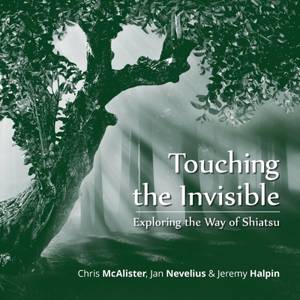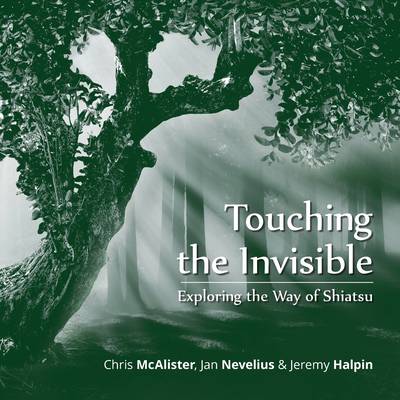
- Afhalen na 1 uur in een winkel met voorraad
- Gratis thuislevering in België vanaf € 30
- Ruim aanbod met 7 miljoen producten
- Afhalen na 1 uur in een winkel met voorraad
- Gratis thuislevering in België vanaf € 30
- Ruim aanbod met 7 miljoen producten
Touching the Invisible
Exploring the Way of Shiatsu
Chris McAlister, Jeremy Halpin, Jan Nevelius
Paperback | Engels
€ 58,45
+ 116 punten
Omschrijving
Three experienced Shiatsu practitioners share knowledge and insights gained over thirty years of clinical practice and teaching to create a book they themselves would have wanted to provide practical guidance and philosophical perspective on this healing art. The book's central themes are awareness, intuition and intention in the practice of Shiatsu and how this body-mind perspective can influence the wider health debate. A modern rendering of the ancient wisdom underpinning Shiatsu and Oriental medicine, this book goes beyond the technical details of Shiatsu as a specific therapy to the universal principles underlying it. Presenting Shiatsu from different perspectives, ranging from its philosophical underpinnings to the realities of daily practice, this text represents the fruit of the knowledge we apply and continually re-evaluate in our ongoing clinical work. The question and answer format is based upon classical tradition - the most famous text within traditional Oriental medicine, Huang Di Nei Jing, uses this method to illustrate complex ideas in an easy to read manner. The text is organically formed through questions formulated by our student and fellow practitioner Filippa Freed. These questions, stemming from her training and practice, facilitate a broad discussion that roams freely between technical principles, case studies and informal anecdotes.
Specificaties
Betrokkenen
- Auteur(s):
- Uitgeverij:
Inhoud
- Aantal bladzijden:
- 326
- Taal:
- Engels
Eigenschappen
- Productcode (EAN):
- 9781728352480
- Verschijningsdatum:
- 29/01/2021
- Uitvoering:
- Paperback
- Formaat:
- Trade paperback (VS)
- Afmetingen:
- 216 mm x 216 mm
- Gewicht:
- 811 g

Alleen bij Standaard Boekhandel
+ 116 punten op je klantenkaart van Standaard Boekhandel
Beoordelingen
We publiceren alleen reviews die voldoen aan de voorwaarden voor reviews. Bekijk onze voorwaarden voor reviews.








